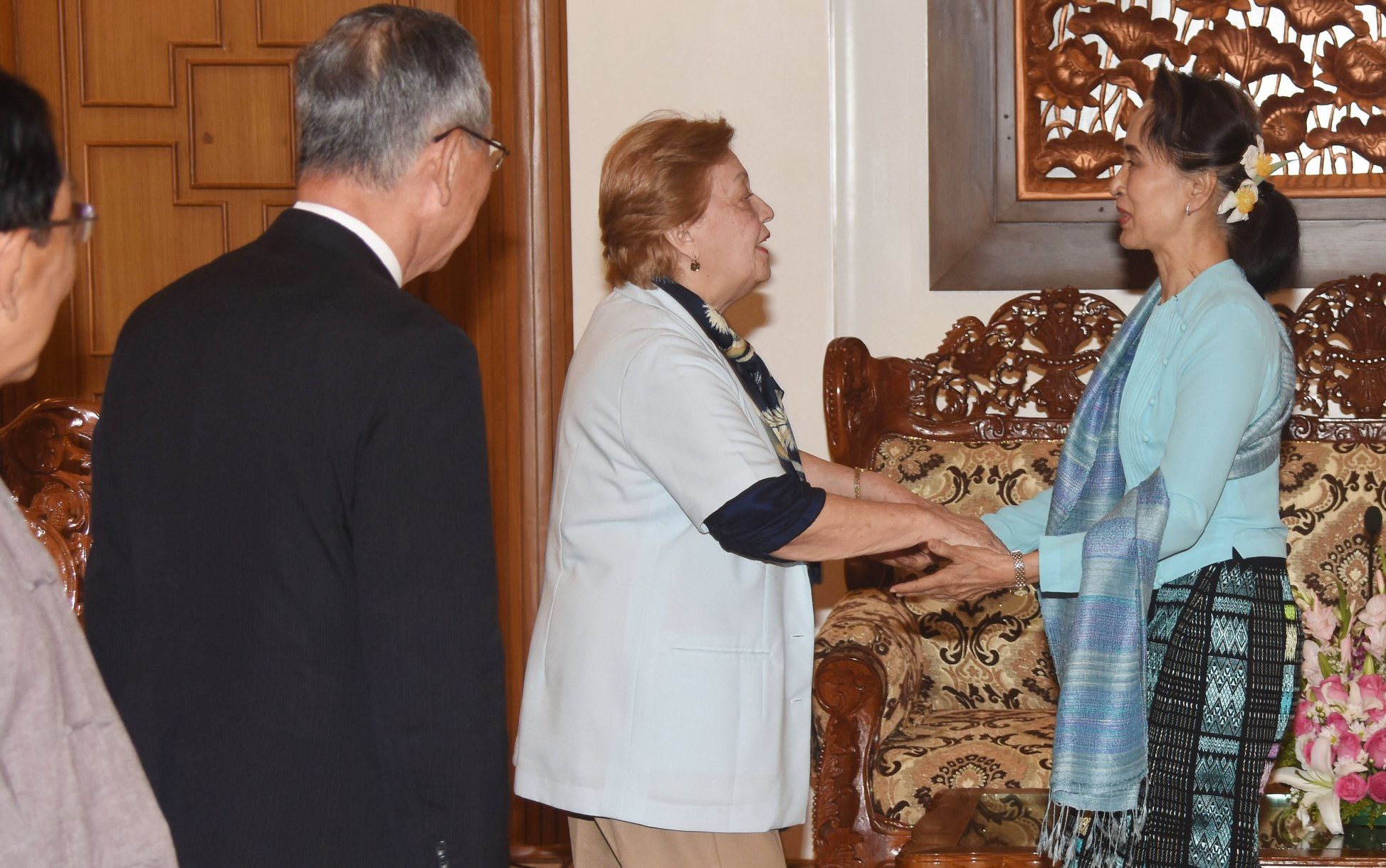A panel appointed by Myanmar State Counsellor Aung San Suu Kyi to investigate alleged human rights violations during military operations in northern Rakhine State last year held its first meeting in Naypyidaw yesterday. Afterward, in a briefing with reporters, the panelists stressed that their mission not to hold anyone accountable for such violations.
“I assure you there will be no blaming of anybody, no finger-pointing of anybody, because we don’t achieve anything by that procedure,” said Philippine diplomat Rosario Manolo, who heads the panel.
“It is not a diplomatic approach, and a very bad approach, in fact, to be doing finger-pointing, blaming, to say ‘you’re accountable,’” she went on. “That is quarreling. That is not looking for peace.”
Previous investigations by rights organizations have found that thousands of Rohingya civilians were killed or raped in military operations that drove 700,000 refugees into Bangladesh starting on Aug. 25, 2017. Satellite imagery shows the charred remains of numerous Rohingya neighborhoods that have been razed, some of which have been bulldozed to make way for Myanmar military installations.
Myanmar’s military insists that its operations were a response to attacks by the Arakan Rohingya Salvation Army on security outposts, but rights groups have published findings that demonstrate that the military’s assault on Rohingya communities was planned weeks in advance.
An internal military investigation exonerated all personnel of wrongdoing last November, but seven soldiers were then given 10-year prison sentences for murder in January after Reuters uncovered their role in the Sept. 2017 massacre of 10 Rohingya men and boys in Inn Din village. Two reporters who helped expose the massacre are now prison and facing charges for allegedly possessing state secrets.
Rather than holding military leaders accountable for their role in allowing such a massacre to take place, the Independent Commission of Enquiry says its role is to challenge the narrative that has led many, including the prosecutor of the International Criminal Court, to call for charges to be brought against Myanmar military leaders for crimes against humanity.
“Given the fact, there is so much, in some reports which have come out, reports which are frankly too one-sided, I imagine that the government has felt the need to set up a commission such as this one, with the participation of foreign members, with the desire to bring in more balance, set the record straight,” said commission member Kenzo Oshima, a former Japanese ambassador to the United Nations.
In a sweeping invitation to reporters to help the commission uncover new information that could help form this new narrative, chairperson Monolo said: “Welcome please, I am telling here to everybody, listening and interested, come with us so we can work together.”
Immediately thereafter, a journalist asked the commissioners whether they would seek input from Rohingya refugees in Bangladesh. The commissioners balked.
“Quite possible. We are certainly going to visit the people in Rakhine State, the IDP camps, and the Rakhine State authority people as well,” Oshima said. “As to specifics, we will consult amongst ourselves and make up our minds later on.”



Reader Interactions